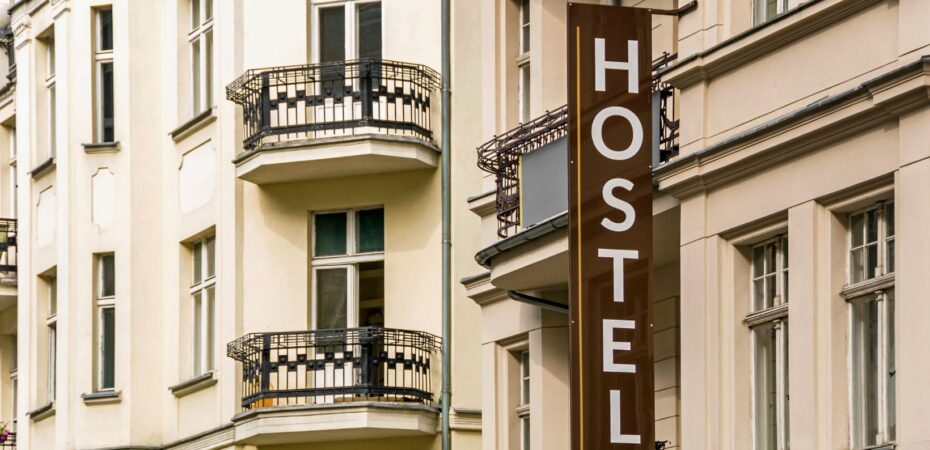Finding a good hostel can feel like a gamble. Some look great online but turn out noisy, cramped, or far from everything you want to see. Others can surprise you with spotless rooms, friendly staff, and social spaces that make you want to stay longer. Knowing how to tell the difference before you book is the key to traveling well on a budget.
And this guide can help you learn how to choose the right hostel. Modern hostels redefine budget travel by offering stylish rooms, social spaces, and local experiences that rival hotels—making it easier than ever to book your entire journey online and enjoy world-class comfort without breaking the bank.
Getting the basics right
There’s a special kind of traveler who knows how to spot comfort where others only see price tags. They skip the overpriced hotels and find a hostel that feels less like a compromise and more like a discovery.
Walk into one of today’s best hostels and you might see friends sharing breakfast at a long wooden table, laptops open in a co-working lounge, and someone challenging a stranger to a ping pong match — winner gets bragging rights or maybe a drink later.
But how to find one like this? Good hostels start with the essentials:
- Clean sheets, strong WiFi, secure lockers, and bathrooms that don’t make you regret your decision are non-negotiable.
- Beds are sturdy and fitted with blackout curtains for privacy.
- Air conditioning or proper ventilation keeps nights cool.
- Top hostels sit close to metro stations or in walkable areas, where you can reach the main sights in minutes but still sleep away from street noise.
Modern hostels are not what they used to be. Over the last decade, the best of them have reinvented what “budget travel” means. They now balance affordability with surprising comfort, offering everything that makes a trip social, safe, and relaxing — just at a fraction of the cost.
And one more thing that a great hostel has — a nice common area.
Spaces that feel like home
Where hostels really stand out is in their shared spaces. Communal lounges have replaced the dull common rooms of the past, with some even featuring a small decorative fountain that creates a relaxing ambiance. You’ll find bright interiors, rooftop terraces with panoramic views, and kitchens that feel more like cozy cafés than backpacker zones.
Some hostels even go further and provide:
- Co-working areas with charging docks and coffee machines that never seem to rest
- Mini gyms or yoga decks for those who don’t skip workouts while traveling
- Outdoor hammocks or fire pits for late-night talks and music sessions
The idea is simple: everyone gets their own quiet corner, but there’s always a place to join in when you want company.
And then there are the games. Ping pong tables, foosball, board games, even Nintendo consoles — the fun often starts right after sunset. It’s common to see groups gathering around a table to play cards or watch and bet on ping pong matches between other guests. The stakes are rarely serious, maybe a round of drinks or a shoutout on the hostel’s social board, but they turn casual evenings into something worth remembering.

Some hostels also host group dinners, rooftop barbecues, or quiz nights. There’s always an open invitation to join in, whether you’re alone or traveling with friends. Music usually comes from a Bluetooth speaker in the corner, and stories flow as easily as the drinks.
How to choose a smart comfort on a budget
Keeping all of this affordable requires a balance. Hostels save on costs by offering dorm options and self-serve setups, but they invest where it matters — good mattresses, quality bedding, and solid soundproofing.
A private room in a top-rated hostel might cost half of what a nearby hotel room does, yet the comfort level isn’t far off. For digital nomads or solo travelers, that mix of price, practicality, and community is hard to beat.
If you’re picking one for your next trip, look beyond the star ratings.
Here’s what to check before booking:
- Read recent guest reviews (focus on cleanliness and atmosphere)
- Look at photos of common areas — genuine ones show real people, not staged shots
- Check if the hostel organizes group activities like city walks or game nights
- Confirm they have lockers, luggage storage, and a 24-hour desk for late or early travel plans
And decide if you want to have a fun night in a room of strangers, or just to sleep in peace and quiet, and choose the hostel that meets your expectations. For example, Balmers in Interlaken is perfect for meeting fellow travelers and joining in games or social events. At the same time, Tilia Hostel in Faro is better for relaxing and recharging before your next adventure.
Final thoughts
Today’s best hostels have rewritten the rulebook. They don’t just offer a cheap bed; they offer comfort, creativity, and connection in one place. From rooftop dinners to friendly ping pong bets, they’ve turned simple overnights into experiences that stick.
If you ever wondered whether hostels could feel world-class, book one on your next trip, and you might just end up staying longer than planned.


 By
By 




